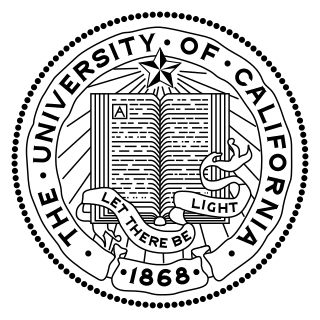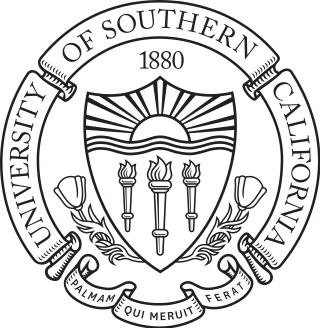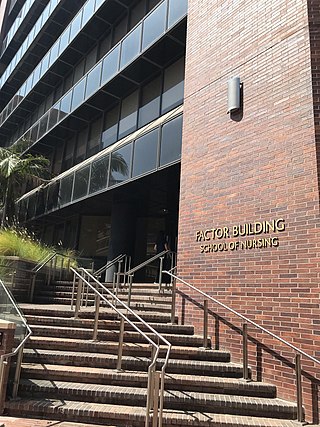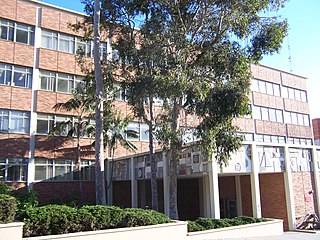
The University of California (UC) is a public land-grant research university system in the U.S. state of California. Headquartered in Oakland, the system is composed of its ten campuses at Berkeley, Davis, Irvine, Los Angeles, Merced, Riverside, San Diego, San Francisco, Santa Barbara, and Santa Cruz, along with numerous research centers and academic abroad centers. The system is the state's land-grant university. Major publications generally rank most UC campuses as being among the best universities in the world. In 1900, UC was one of the founders of the Association of American Universities and since the 1970s seven of its campuses, in addition to Berkeley, have been admitted to the association. Berkeley, Davis, Santa Cruz, Irvine, Los Angeles, Santa Barbara, and San Diego are considered Public Ivies, making California the state with the most universities in the nation to hold the title. UC campuses have large numbers of distinguished faculty in almost every academic discipline, with UC faculty and researchers having won 71 Nobel Prizes as of 2021.

The University of Southern California is a private research university in Los Angeles, California. Founded in 1880 by Robert Maclay Widney, it is the oldest private research university in California. The university is composed of one liberal arts school, the Dornsife College of Letters, Arts and Sciences, and 22 undergraduate, graduate, and professional schools, enrolling roughly 21,000 undergraduate and 28,500 post-graduate students from all fifty U.S. states and more than 115 countries. It is a member of the Association of American Universities, which it joined in 1969.

The University of California, Los Angeles (UCLA) is a public land-grant research university in Los Angeles, California, United States. Its academic roots were established in 1881 as a normal school then known as the southern branch of the California State Normal School which later evolved into San José State University. The branch was transferred to the University of California, becoming the Southern Branch of UC in 1919, making it the second-oldest of the ten-campus University of California system after the University of California, Berkeley.
The Los Angeles Westside is an urban region in western Los Angeles County, California, United States. It has no official definition, but sources like LA Weekly and the Mapping L.A. survey of the Los Angeles Times place the region on the western side of the Los Angeles Basin south of the Santa Monica Mountains.
The UCLA School of Education and Information Studies is one of the academic and professional schools at the University of California, Los Angeles. Located in Los Angeles, California, the school combines two departments. Established in 1881, the school is the oldest unit at UCLA, having been founded as a normal school prior to the establishment of the university. It was incorporated into the University of California in 1919.

Lloyd Monserratt, was an American political activist and Director of Constituent Services for the National Association of Latino Elected and Appointed Officials, where he trained a number of future Latino politicians. While studying at the University of California, Los Angeles (UCLA) in 1988, he was elected student council president. When he was subsequently ruled ineligible to hold office, the resulting campus unrest and demonstrations made national headlines and led to charges of endemic racial discrimination at the California public university. At the time of his death, Monserratt was chief-of-staff for Los Angeles City Councilmember Nick Pacheco.

The University of California Student Association (UCSA) is an active 501(c)(3) unincorporated association, purposed as a student association of all University of California (UC) students. Its charter states that it "shall exist to: serve the interests of the current and future students of the University of California and promotes [sic] cooperation between various student governments of the University and student organizations concerned with higher education." The Association is not a public agency, but its leadership is composed of representatives of UC student governments, which are "official units of the University" system. UCSA participates in various aspects of the UC system's governance, notably including the selection of the student representative on the UC Board of Regents.
The Daily Bruin is the student newspaper at the University of California, Los Angeles. It began publishing in 1919, the year UCLA was founded.

Marymount California University was a private Catholic university in Rancho Palos Verdes, California. Originally founded by the Religious of the Sacred Heart of Mary (RHSM), the university awarded associate, bachelor's, and graduate degrees. The institution was accredited by the WASC Senior College and University Commission. The university closed in August 2022.

Charles Edward Young, nicknamed Chuck Young, was an American university administrator and professor. A native of California, Young led the University of California, Los Angeles (UCLA) for 29 years as chancellor and the University of Florida for more than four years as president.

James Ellis LuValle was an American athlete and scientist. He won the bronze medal in the 400 metres at the 1936 Summer Olympics, and was an accomplished chemist and founder of the Graduate Students Association at the University of California, Los Angeles (UCLA).

The UCLA–USC rivalry is the American collegiate athletics rivalry between the UCLA Bruins sports teams of the University of California, Los Angeles (UCLA) and USC Trojans teams of the University of Southern California (USC).

The UCLA School of Nursing is a nursing school affiliated with UCLA, and is located in the Westwood neighborhood of Los Angeles, California. The school is housed in the Doris and Louis Factor Health Sciences Building, known as the Factor Building, on the south end of UCLA's 400-plus-acre campus, adjacent to the Ronald Reagan UCLA Medical Center.

Student housing owned by the University of California, Los Angeles is governed by two separate departments: the Office of Residential Life, and Housing and Hospitality Services, and provides housing for both undergraduates and graduate students, on and off-campus.
The history of the University of California, Los Angeles traces back to the 19th century when the institution operated as a teachers' college. It grew in size and scope for nearly four decades on two Los Angeles campuses before California governor William D. Stephens signed a bill into law in 1919 to establish the Southern Branch of the University of California. As the university broke ground for its new Westwood campus in 1927 and dissatisfaction grew for the "Southern Branch" name, the UC Regents formally adopted the "University of California at Los Angeles" name and "U.C.L.A." abbreviation that year. The "at" was removed in 1958 and "UCLA" without periods became the preferred stylization under Chancellor Franklin D. Murphy in the 1960s. In the first century after its founding, UCLA established itself as a leading research university with global impact across arts and culture, education, health care, technology and more.

The UCLA College of Letters and Science is the arts and sciences college of the University of California, Los Angeles (UCLA). It encompasses the Life and Physical Sciences, Humanities, Social Sciences, Honors Program and other programs for both undergraduate and graduate students. It is often called UCLA College or the College, which is not ambiguous because the College is the only educational unit at UCLA to be currently denominated as a "college." All other educational units at UCLA are currently labeled as schools or institutes.

Student governments in the United States exist in both secondary and higher education. At the collegiate level, the most common name is Student Government, according to the American Student Government Association's database of all student governments throughout the United States. The next most common name is the student government association. Other names are student senate, associated students, or less commonly students' union. There was one instance of a government of the student body, at Iowa State University. At Yale University, the undergraduate student government is known as the Yale College Council. High school student governments usually are known as Student Council.

The student regent is a position on the University of California Board of Regents created by a 1974 California ballot proposition to represent University of California (UC) students on the university system's governing board. Student regents serve an approximately one-year term as 'student regent-designate', followed by a one-year term as a full voting member of the Regents. The 2022–2023 student regent is Marlenee Blas Pedrail, a UC Berkeley law student, and the student regent-designate is Merhawi Tesfai, a UCLA graduate student.
The 1927–28 UCLA Bruins men's basketball team represented the University of California, Los Angeles during the 1927–28 NCAA men's basketball season and were members of the Pacific Coast Conference. The Bruins were led by seventh year head coach Caddy Works. They finished the regular season with a record of 10–5 and were third in the southern division with a record of 5–4.
Regents of University of California v. Superior Court of Los Angeles County, 4 Cal. 5th 607, 413 P.3d 656 (2018), was a case in which the Supreme Court of California held that universities owe a duty to protect students from foreseeable violence during curricular activities. In an opinion by Justice Ming Chin, the Court tossed out the 2010 case in which Katherine Rosen, a former UCLA student, sued the university for negligence when another student stabbed her in a chemistry lab. Following this ruling, Rosen can pursue the case again in court.















